Chef Chaim Bornstein Reveals: 'How Luxury Entered the Haredi Kitchen'
What led luxury dishes to infiltrate the Haredi community, and who consumes them? How much does it cost, and who still prefers schnitzel and bourekas? Chef Chaim Bornstein unveils secrets.
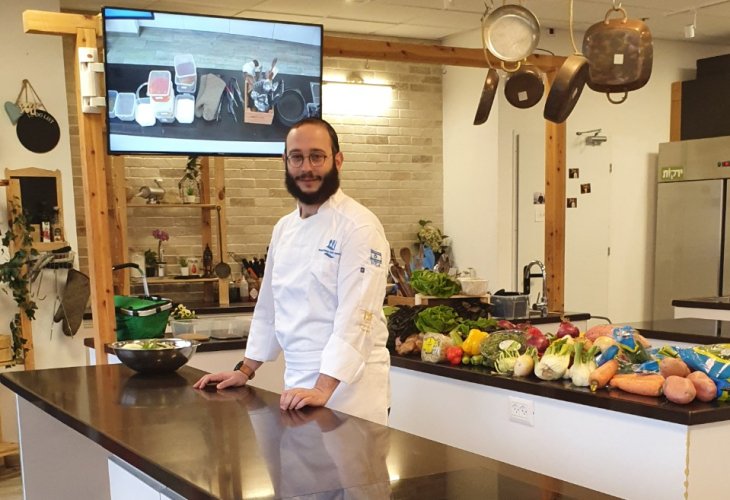 Chef Chaim Bornstein
Chef Chaim Bornstein"The observant community has progressed countless steps forward when it comes to the topic of food," Chef Chaim Bornstein declares passionately. It is evident that this issue concerns him, and he strives to learn as much as possible about it.
"In the past, it was clear that if you kept kosher, you had to settle for simple food," he adds, "kosher dishes, even at the best restaurants and luxury halls, were always simple – various schnitzels, chicken legs with potatoes and rice... all the conventional and well-known foods. Sometimes tastier, sometimes less so, but it was clear that people seeking strict kosher could not dream of stylish gourmet dishes and rich flavors".
In recent years, according to him, things have drastically changed, with him, having been in the profession for about a decade, considered one of the change catalysts. He is thirty, married with three children, and comes from a family deeply involved in all things food-related. "I have a brother who manages a large kitchen in Bnei Brak, and my father is also in the field. We all love innovation in food and see it as our mission to bring the best and most unique to the public that strictly observes kosher."
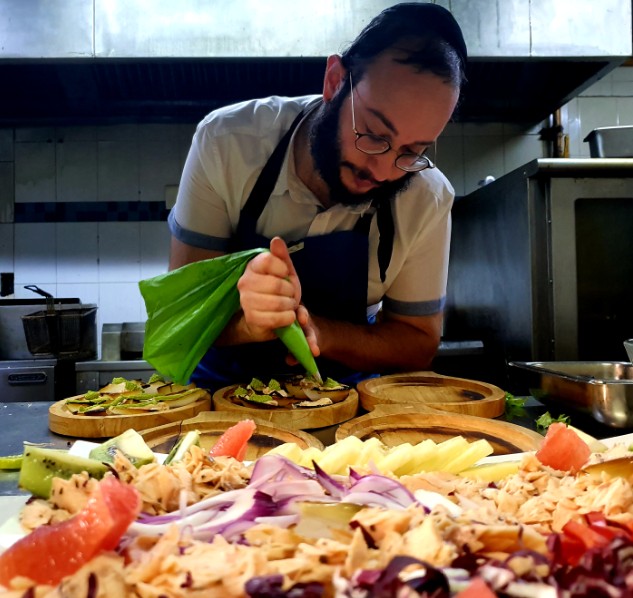
Steering Clear of Non-Kosher Restaurants
Bornstein shares that during his chef training, he attended comprehensive studies and took courses in various places in Israel and abroad. "When I studied at schools that strictly kept kosher, it was certainly convenient for me, but there were also times when I tried to make global cuisine accessible to the Haredi public. This was already a challenging task since there are many ingredients that we cannot use. Here I took advantage of the fact that in recent years various substitutes for ingredients previously unknown have emerged. I learned to recognize and use them, thus succeeding in 'koshering' almost any luxurious gourmet dish. I strive to do so in the most professional way."
When Bornstein finished his studies, he sought employment, among other opportunities receiving a proposal from a highly regarded restaurant in the central region. "I naively thought the restaurant was strictly kosher and scheduled a job interview with the head chef. Before the interview, the chef asked me to glance at the menu to understand how they work and come prepared for the interview. I looked at the menu and felt terrible. It turned out the restaurant was not kosher at all. Of course, at that moment, I informed the chef that the job offer was canceled. I could not consider working in a non-kosher place."
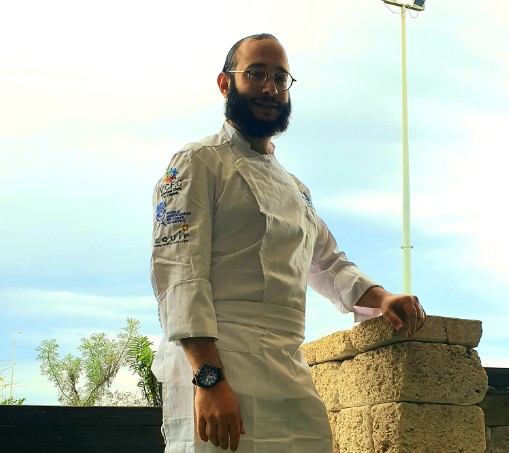 Photo by: Kevin Ancunina
Photo by: Kevin AncuninaOn the other hand, he notes that alongside the trend of upgrading strictly kosher food, many previously non-kosher establishments are deciding to join the strictly kosher restaurants. "They realize that the challenge is no longer as significant as before, and at the same time, they are aware that there are many customers explicitly seeking kosher restaurants. Their challenge is to become strictly kosher without compromising on quality, and when they employ good professionals, they completely succeed in this."
Nonetheless, are there professional aspects you have to forgo because you are Haredi?
"Of course, I would love to study in France, places that offer the pinnacle of modern cuisine. These are regarded highly in advancing and could greatly enhance me. But I understand that I will have to give up on that. It is impossible and not suitable for someone who observes kosher. So yes, I have to restrain myself and content myself with courses suitable for me."
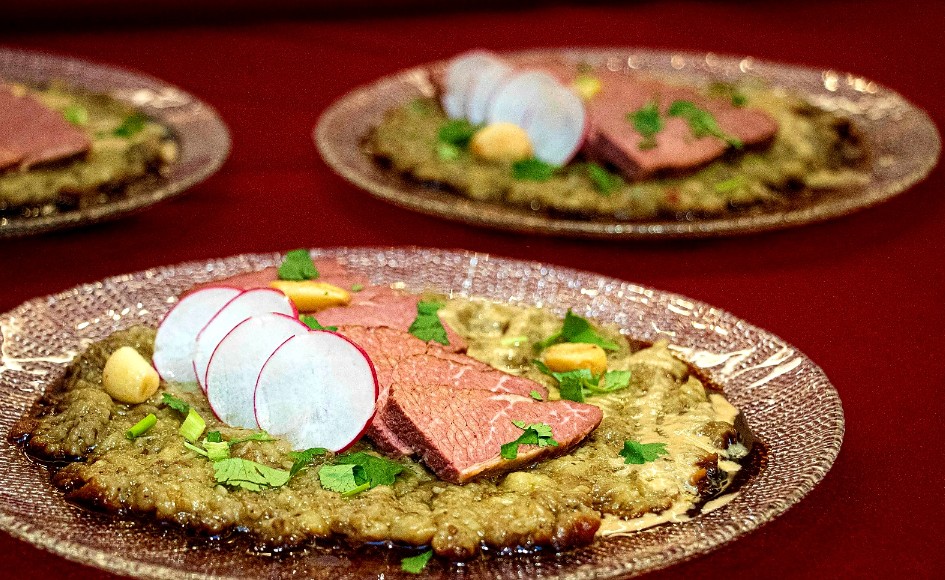
When Luxury Meets Tradition
Bornstein might have missed the job offer at the luxury restaurant, but he doesn’t have a free moment in his day. Throughout the year, he works at strictly kosher hotels worldwide. Just two weeks ago, he was invited to a prestigious event celebrating the completion of the Shas in Hungary, where he was responsible for the highly invested culinary side, fitting for the honor of the Torah.
As part of his work, he also provides culinary consulting to businesses, teaches at culinary schools, offers menus for private events, and oversees the maternity department at Maayanei Hayeshua. In some places, he offers simple food, but his primary specialty is upgraded dishes.
Does the fact that mehadrin dishes have become upgraded also make them more expensive?
"Certainly, that’s clear. But people are willing to pay for it because it matters to them. Many people organize high-level events and want to give their guests the feeling of 'I have never tasted anything like this.' They want to be different, offering a unique experience, and are willing to pay for it, sometimes several times over the amount required for regular dishes."
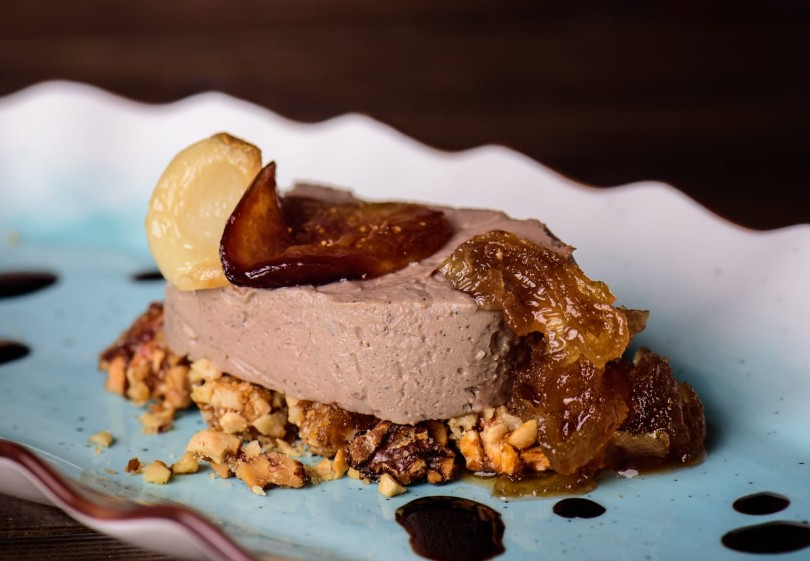 Photo Credit: Kevin Ancunina
Photo Credit: Kevin AncuninaDo upgraded dishes necessarily include elements and names of ingredients difficult to pronounce?
"No, not at all," he responds with a smile, "often, there are those who will request the familiar, traditional home food, but with touches of style and luxury. This is also possible, of course. For example, if we serve chicken soup on Friday night, it will be of a different quality – we will make it based on a beef or vegetable stock, with a wide variety of vegetables to provide rich flavors and an aromatic scent.
"On Shabbat morning, we will not serve simple liver, but rather a liver pâté on a bed of jam. We will also prepare the meat differently, primarily using smoking methods to offer a different twist. The foods will remain nostalgic and traditional, but the flavors will be at a much higher level, characteristic of gourmet and luxury."
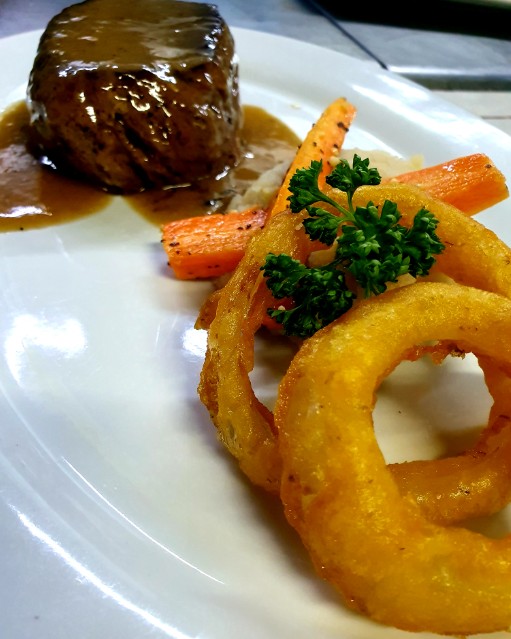
Do you think people know how to appreciate this?
"I have clients from all walks of life in the religious, secular, and Haredi communities, and people definitely know how to appreciate quality. I also see that more and more, people are specifically ordering luxury dishes, even though, in general, they belong to the upper decile. On the other hand, there are those accustomed to schnitzel and bourekas and do not try to upgrade them. They are happy as they are and satisfied. That is perfectly fine, of course, and everyone acts according to their budget and taste."
In fact, as someone who comes from the field, Bornstein notes an important tip: "If you want to make your event luxurious and don't have the budget to invest in food, invest in good table settings and set the table decently and suitably. This alone will give the food a better taste, from experience."

